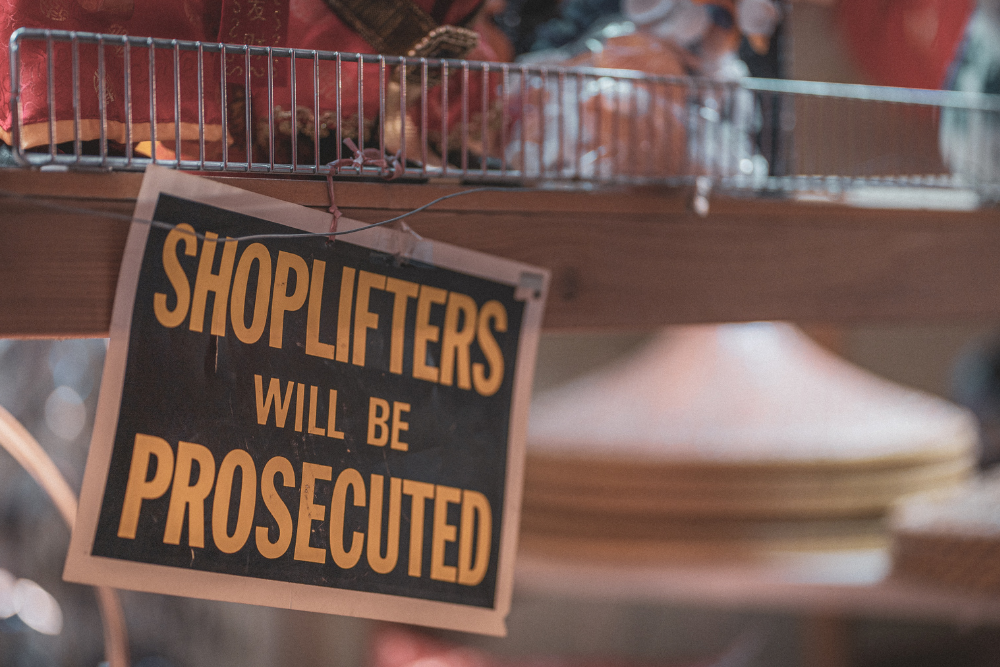The Rise of Retail Theft in San Joaquin County
San Joaquin County is facing a surge in retail theft incidents, leaving local businesses struggling to cope with the financial and operational toll. According to crime mapping data, a staggering 319,122 commercial burglaries were reported in Stockton alone over the last 12 months. In contrast, less than 50 shoplifting calls were made during the same period. This worrying pattern has cranked up the heat on small businesses, which tend to get hit hardest by retail theft. The financial impact can be devastating, with some businesses reporting losses in the tens of thousands of dollars. Beyond the immediate monetary losses, retail theft also disrupts day-to-day operations, forcing businesses to invest in additional security measures and staff training.
Impact on Small Businesses
Small businesses in San Joaquin County are bearing the brunt of the retail theft epidemic. Many businesses operate on tight margins, making absorbing the costs of stolen merchandise and damaged property difficult. Managing finances can hit hard for businesses with shelves stocked with pricey items, like the latest gadgets or designer brands. Beyond just hitting their wallets, retail theft can weigh on small business owners and their teams’ hearts and minds. The constant threat of theft can create a sense of unease and stress, making it difficult to focus on growing the business and serving customers.
Innovative Solutions to Combat Retail Theft
To address the growing problem of retail theft in San Joaquin County, local authorities have introduced a new tool: the “Stockton Takes Action Against Retail Theft” app. This innovative solution aims to empower retailers by directly communicating with prosecutors, streamlining the reporting process, and facilitating swift action against perpetrators. The app is part of a broader effort to combat retail crime in the region, which has significantly increased in recent years. The initiative seeks to create a safer and more secure environment for businesses and consumers by leveraging technology and fostering collaboration between retailers and law enforcement. The “Stockton Takes Action Against Retail Theft” app is designed to be user-friendly and accessible, allowing retailers to report incidents quickly and easily. When a theft occurs, store employees can use the app to provide details about the incident, including suspect descriptions, stolen merchandise, and any available evidence, such as surveillance footage. Once a report is submitted, the information is immediately shared with local prosecutors, who can review the case and determine the appropriate course of action. This direct connection between retailers and law enforcement helps to ensure that cases are handled efficiently and effectively, reducing the time and resources required to investigate and prosecute retail theft.
Success Stories from Similar Initiatives
The development of the “Stockton Takes Action Against Retail Theft” app was influenced by the success of similar initiatives in other jurisdictions. One notable example is the “Fast Path to Prosecution” app the Yellow County District Attorney’s Office implemented. In just 90 days, a single 7-Eleven store reported a theft of $93,000, highlighting the scale of the problem faced by retailers. The “Fast Path to Prosecution” app proved a game-changer, resulting in felony criminal charges against 30 suspected shoplifters. This success story demonstrates the potential impact of technology-driven solutions in the fight against retail theft.
Legal and Enforcement Challenges in Addressing Retail Theft
Despite introducing innovative solutions like the “Stockton Takes Action Against Retail Theft” app, law enforcement agencies in San Joaquin County continue to face significant legal and enforcement challenges when effectively tackling retail theft. One of the primary hurdles is the complex nature of state laws governing retail crime. The rules change a lot depending on where you are in the country, which can throw law enforcement for a loop when they’re trying to chase down bad guys and bring them to justice. Additionally, the threshold for what constitutes a felony offense in retail theft cases can be high, limiting the ability of prosecutors to seek more severe penalties. State laws heavily influence the effectiveness of law enforcement in addressing retail crimes. In California, for example, Proposition 47, passed in 2014, reduced certain non-violent felonies to misdemeanors, including some instances of retail theft. This change in the law has made it more challenging for law enforcement to pursue serious charges against repeat offenders and organized retail crime rings. Moreover, the legal definition of a “shoplifting” offense can vary depending on the value of the stolen merchandise and the offender’s criminal history. These nuances in the law can create confusion and inconsistency in how retail theft cases are handled, making it more difficult for law enforcement to combat the problem effectively.
Role of San Joaquin County Sheriff’s Office
The San Joaquin County Sheriff’s Office is crucial in combating regional retail theft. Yet, the team is running into a brick wall trying to tackle this expanding issue, dealing with their headaches and obstacles. One of the primary issues is the sheer volume of retail theft incidents reported in the county. With limited resources and personnel, the Sheriff’s Office must prioritize cases based on the value of the stolen merchandise and the potential for violence or other aggravating circumstances. This can leave some retailers feeling unsupported and vulnerable, particularly those who experience frequent but lower-value thefts.

Legislative Efforts to Strengthen Retail Theft Statutes
Recognizing the need for stronger legal tools to combat retail theft, California lawmakers have introduced several bills to strengthen the state’s retail theft statutes. With these new laws, police and lawyers are getting stronger tools to go after bad guys and stop future wrongdoings. One of the most notable pieces of legislation is Assembly Bill 2390, authored by Assemblymember Rudy Salas. This bill proposes to amend existing law to allow for the aggregation of multiple theft offenses occurring in different jurisdictions, making it easier for prosecutors to pursue more serious charges against organized retail crime rings.
Assembly Speaker Robert Rivas’ Role
Assembly Speaker Robert Rivas has been a vocal advocate for stronger legislation to address the growing problem of organized retail theft in California. Steering the ship at the state Assembly, Rivas has been all about spotlighting this pressing issue and rallying for real change. In a recent press conference, Rivas highlighted the need for a comprehensive approach to combating retail theft, including enhanced penalties for perpetrators and increased support for law enforcement and retailers. He has pledged to work with his colleagues in the legislature to craft effective solutions that balance public safety concerns with the rights of the accused.
Conclusion
Imagine walking into your shop every morning, only to find the shelves as full and inviting as you left them the night before. No more losses that hit where it hurts most; instead, a thriving local business scene in San Joaquin County buoyed by resilience against retail theft. It’s not a pipe dream but a reality we’re inching closer to with innovative solutions like “Stockton Takes Action Against Retail Theft.”
This isn’t merely about combating an uptick in crime; it’s about reclaiming our community’s safety and economic stability. We’re seeing tangible progress from apps connecting retailers directly with prosecutors to legislative efforts beefing up enforcement capabilities.
The truth? When small businesses thrive, so do our neighborhoods. This fight against retail theft is much more than safeguarding inventory—preserving dreams and livelihoods.
And here’s the kicker: when communities band together through technology or sheer willpower, we create safer streets and brighter futures for everyone involved.
So let this be our collective rallying cry: In San Joaquin County, we don’t just stand by; we take action. Together, there’s no hurdle too high nor challenge too daunting. Let’s keep pushing forward because what lies ahead is worth every effort—a thriving community resilient in adversity.
FAQs
The main issue discussed is the rise of retail theft in San Joaquin County and the impact it has on small businesses.
The “Stockton Takes Action Against Retail Theft” app is an innovative tool introduced to empower retailers by facilitating direct communication with prosecutors, streamlining the reporting process, and enabling swift action against perpetrators of retail theft.
Small businesses in San Joaquin County are significantly impacted by retail theft, facing financial losses, operational disruptions, and the need for increased security measures and staff training.
Law enforcement agencies encounter challenges due to complex state laws, high thresholds for felony charges, and legal definitions of shoplifting offenses, which can vary based on stolen merchandise value and criminal history.
The San Joaquin County Sheriff’s Office is crucial in addressing regional retail theft but faces limitations in resources and must prioritize cases based on factors like stolen merchandise value and potential risks.
California lawmakers have introduced bills like Assembly Bill 2390 to enhance the state’s legal tools for prosecuting organized retail crime rings through aggregating theft offenses across different jurisdictions.
Assembly Speaker Robert Rivas advocates for stronger legislation to combat organized retail theft in California, emphasizing the need for comprehensive approaches that support law enforcement, retailers, and public safety concerns.
Communities can combat retail theft through innovative solutions like technology-driven apps, collaboration between retailers and law enforcement, legislative efforts to strengthen laws, and collective efforts to create safer environments for businesses and consumers.








